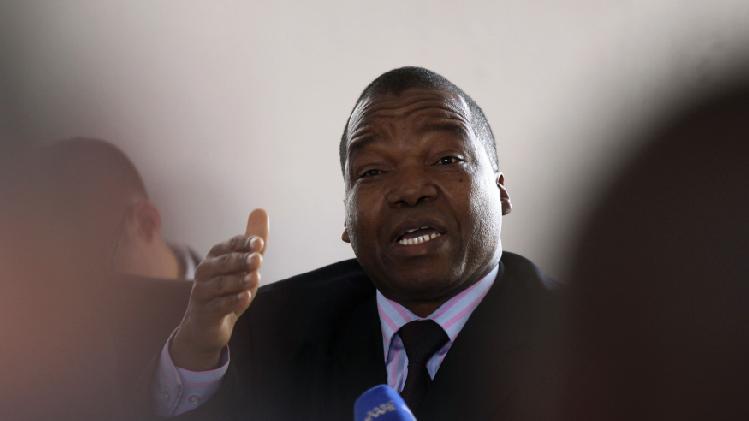 Zimbabwe is to inject cash into the market to ease the current shortages because it is now creating opportunities for arbitrage and distortions in the pricing mechanism, Reserve Bank of Zimbabwe governor John Mangudya said in his mid-term monetary policy statement released yesterday.
Zimbabwe is to inject cash into the market to ease the current shortages because it is now creating opportunities for arbitrage and distortions in the pricing mechanism, Reserve Bank of Zimbabwe governor John Mangudya said in his mid-term monetary policy statement released yesterday.
He did not disclose how much money he will pour into the market but Finance Minister Mthuli Ncube said a few months ago that Zimbabwe will put in $400 million into the market before the end of the year.
Mangudya, however, said studies had shown that currency in circulation should be 10-15 percent of the broad money supply.
He put the current broad money supply at about $15 billion which means that the country needs $1.5 billion to $2.25 billion in circulation.
Mangudya said the cash injection will not result in an increase in money supply because banks will use their existing RTGS balances in exchange for cash.
“The current shortage of physical cash has led to a supply and demand disequilibrium, and arbitrage opportunities for differential pricing models, depending on the mode of payment, thereby creating distortions in the pricing mechanism,” Mangudya said.
“Shortages of cash excludes the informal sector, the rural people and senior citizens from fully participating in economic activity.”
He said the shortage was also affecting tourists as they were now required to change their hard currency into local currency to enable them to carry out transactions.
“The re-introduction of the local currency and the subsequent withdrawal of the US Dollar as a transactional currency implies that the Bank should issue adequate notes and coins to support economic activity,” he said.
“The increase in the demand for physical cash has worsened cash shortages, as reflected by unending queues at most banks in the country. In addition, visitors to the country including tourists are failing to access cash for their domestic transactions, as they are supposed to buy local currency cash from banks or bureaux de change.
“Failure to get cash is undermining the confidence in the local currency as well as forcing economic agents to resort to the illegal transactions in foreign currency and to selling cash at a premium.”
Zimbabwe floated its local currency which until last year was trading at par with the United States dollar but is now down to about 13:1.
Mangudya said, however, the interbank market was working efficiently as the interbank rate and the black market rate were now almost equal.
He said so far US$799 million had been traded on the interbank market.
“The current levels of broad money supply of around ZLW$15 billion and the country’s monthly foreign exchange receipts of US$400 million, coupled with fiscal consolidation, should ideally go a long way in stabilising the exchange rate and containing the pass-through effects of exchange rate depreciation to inflation,” he said.
Mangudya also said he expected prices and inflation to start stabilising.
“As the country gets over the pass-through effects of the ongoing realignment of domestic prices that include fuel and electricity, we should see inflationary pressures beginning to recede, as retailers adjust their prices in line with the relative stability of the inter-bank market and falling parallel exchange rate premiums and as prices re-align to depressed or subdued effective demand,” he said.
(200 VIEWS)


